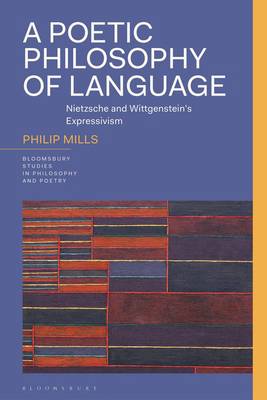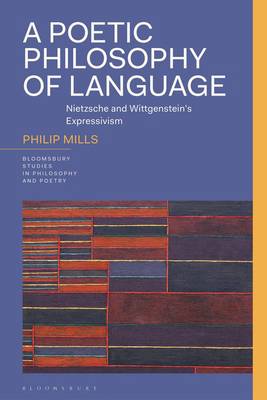
- Afhalen na 1 uur in een winkel met voorraad
- Gratis thuislevering in België vanaf € 30
- Ruim aanbod met 7 miljoen producten
- Afhalen na 1 uur in een winkel met voorraad
- Gratis thuislevering in België vanaf € 30
- Ruim aanbod met 7 miljoen producten
Omschrijving
Connecting poetry and philosophy of language, Philip Mills bridges the continental and analytical divide by bringing together the writings of Nietzsche and Wittgenstein. Through an expressivist philosophy of poetry, he argues that we can understand some of the core questions in the philosophy of language.
Mills highlights the continuity of poetic language with ordinary language, and positions Nietzsche and Wittgenstein's thinking as the clearest way to expand the philosophy of poetry. By tracing the expressivist tradition of philosophy of language, this study locates its roots in German Romanticism right through to the work of contemporary expressivists such as Huw Price and Robert Brandom. Where poetry has been difficult to grasp with the traditional philosophical tools used by aestheticians, A Poetic Philosophy of Language operates at the crossroads between philosophy of art and language, proposing a new philosophy of poetry with wide-ranging potentialities.
Specificaties
Betrokkenen
- Auteur(s):
- Uitgeverij:
Inhoud
- Aantal bladzijden:
- 184
- Taal:
- Engels
- Reeks:
Eigenschappen
- Productcode (EAN):
- 9781350300088
- Verschijningsdatum:
- 25/08/2022
- Uitvoering:
- Hardcover
- Formaat:
- Genaaid
- Afmetingen:
- 156 mm x 234 mm
- Gewicht:
- 430 g

Alleen bij Standaard Boekhandel
Beoordelingen
We publiceren alleen reviews die voldoen aan de voorwaarden voor reviews. Bekijk onze voorwaarden voor reviews.







